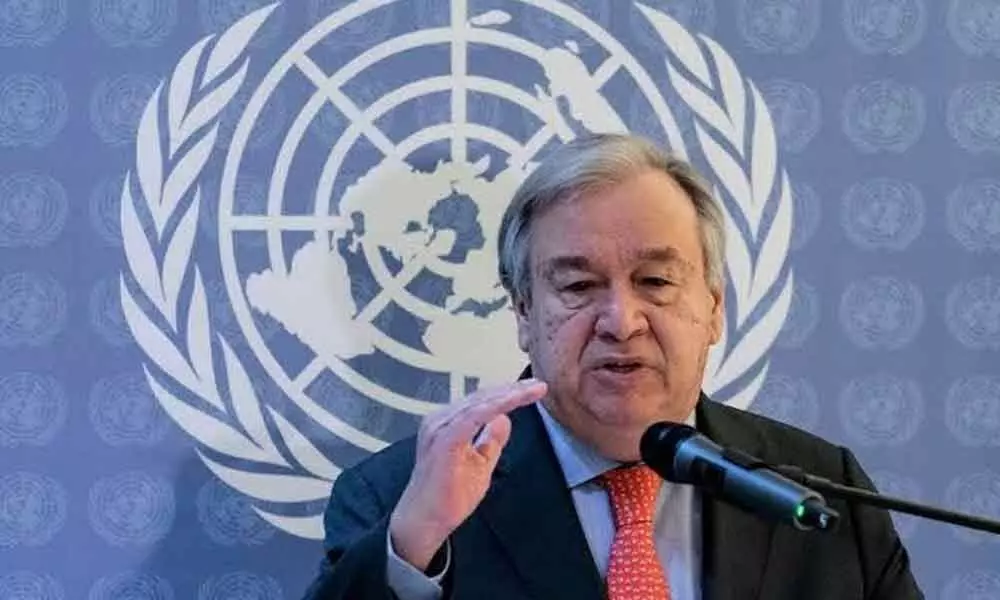UN chief Antonio Guterres upset by CAA

- ‘Necessary to prevent Statelessness when laws are changed’
- CAA offers citizenship to non-Muslim persecuted minorities
Islamabad: Amid concerns over India's Citizenship Amendment Act and the proposed National Register of Citizens (NRC), UN chief Antonio Guterres has said it is necessary to do everything to prevent "statelessness" when a nationality law is changed. Guterres, who was on a three-day visit to Pakistan, when asked whether he was concerned about new laws in India during an interview, said,
"Of course (I am concerned). Because this is an area in which the relevant UN body is quite active." "The present High Commissioner for Refugees is quite active to this situation like many others like this. Because there is risk of Statelessness created by those national laws," the UN Secretary General told Dawn News TV.
"It is absolutely essential when a nationality law is changed, the statelessness is prevented. Because when basic right of anyone anywhere is to have a country that a person calls his, then everything should be done in order to avoid statelessness," he said. The new citizenship law passed by the Indian Parliament in December 2019 offers citizenship to non-Muslim persecuted religious minorities from Pakistan, Bangladesh and Afghanistan.
After the enactment of the law, protests erupted across the country over fears that it may marginalise the minority Muslim community. The Indian government has maintained that the CAA is an internal matter of the country and stressed that the goal is to protect the oppressed minorities of neighbouring countries.
The NRC has been prepared to identify genuine Indian citizens living in Assam since March 24, 1971, or before, and identify illegal Bangladeshi migrants in the state. Out of 3.3 crore applicants, over 19 lakh people were excluded from the final NRC published on August 30. On Kashmir, Guterres said two reports by the UN High Commissioner on Kashmir played an important role in "clarifying exactly what is happening" there and "it is essential that these reports are taken seriously".
Guterres on Sunday said in Islamabad that he was concerned over the situation in Kashmir, and that he was ready to mediate between India and Pakistan to resolve the long pending issue.
Reacting to his offer, India said the real issue needed to be addressed is to vacate territories "illegally and forcibly" occupied by Pakistan. "India's position has not changed. Jammu and Kashmir has been, is, and will continue to be an integral part of India.
The issue that needs to be addressed is that of vacation of the territories illegally and forcibly occupied by Pakistan," the Ministry of External Affairs said in New Delhi.
"Further issues, if any, would be discussed bilaterally. There is no role or scope for third-party mediation," it said. India revoked Jammu and Kashmir's special status on August 5. Reacting to India's move, Pakistan downgraded diplomatic ties with New Delhi and expelled the Indian High Commissioner. When asked why the UN has failed to constitute a high-powered inquiry commission to go to Kashmir and investigate alleged rights violations, the Secretary General said: "Only the governing bodies of the UN or the Security Council can make that decision, but these reports are credible, relevant and very important."














